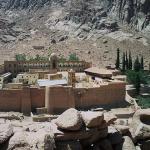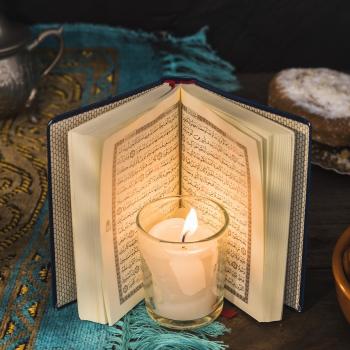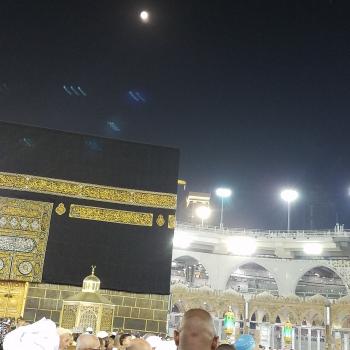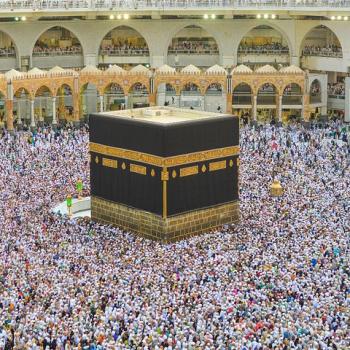
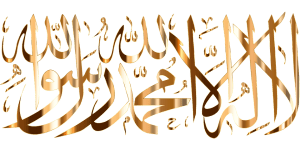 In order to promote cross channel understanding, Matthew Facciani, a Patheos blogger, and I have agreed to ask each other questions related to our respective beliefs and practices. Matthew is a sociology PhD student, science communicator, and gender equality activist. Matthew went first and asked me 4 questions. Here are his questions and my responses. You can read his blog on Patheos at:
In order to promote cross channel understanding, Matthew Facciani, a Patheos blogger, and I have agreed to ask each other questions related to our respective beliefs and practices. Matthew is a sociology PhD student, science communicator, and gender equality activist. Matthew went first and asked me 4 questions. Here are his questions and my responses. You can read his blog on Patheos at:
http://www.patheos.com/blogs/accordingtomatthew/
Matthew: I have to be honest. I was very unfamiliar with “Born Again Muslims!” How would you describe your religious beliefs and how did your religious journey lead you here? Did you practice any other faiths before Islam?
No, I did not practice any other faiths before Islam. But there was a time I was a ‘Muslim’ in name mostly.
I use ‘born-again Muslim’ to refer to my spiritual journey that eventually led me to re-discover my faith, though I must say I never “lost it”. My mother was very religious however you would define that. I moved to the United States some 33 years ago. Life was too busy. I would occasionally turn to God when I needed Him for something, essentially treating him like sugar daddy. Along the way, I got married and had children. I was grateful but still not very connected to God and my faith.
All that changed in a hurry in 1994 when I performed Umrah, or minor pilgrimage, to Mecca.
I still remember the very moment I laid my eyes on Ka’aba for the first time. (Ka’aba is the cubical structure built by Abraham and Ishmael, in Mecca-the holiest site/city in Islam). Same Ka’aba Muslims around the world face five times a day when offering their obligatory prayers. Words, pictures and videos that I have taken would not be able to describe the feelings and emotions I had, seeing it up close, in person.
I saw uniformity despite immense diversity- people wearing the same white unstitched piece of cloth from all over the world. People spoke different languages. I saw blacks, whites, browns, pilgrims belonging to various ethnicities, national origin, men, women-all assembling in one place united in their remembrance of God, with a common goal of seeking His pleasure and nearness in utmost humility. It did not matter if you were a billionaire or just barely made it, we were all the same. I felt like this was the closet to God’s presence I would come in this life.
An update to that spiritual journey: Last year in September, I returned from performing Hajj, the major pilgrimage to Mecca. I have published a few posts on my Patheos blog.
Walking in the same places Abraham, Ishmael and Muhammad all walked once gave me chills. The whole experience was about connecting with God, to honor the memories and sacrifices of the family of Abraham, humbling yourself in unison with 2 million other people.
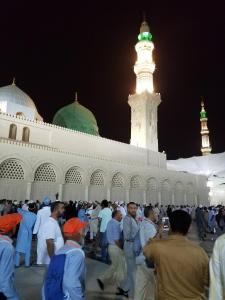
If Umrah was a life changing experience, the Hajj was many times more impactful and transformative. The calmness and peace I felt in my heart is something I will never forget and I wish it upon everyone even my worst enemy to have that feeling at least once in their life time. It gave new meaning to when I greet others with the traditional ‘Assalamo Alaikum’ (peace be unto you)!
“We returned feeling like we are like new-born- all eager to start a new life with a heightened focus on being the best we can be as husbands and wives, as brothers and sisters, as neighbors, as one community, and as human beings.”
I had shared my experience on Patheos while I was there. Couple of them are:
Included here:
http://www.patheos.com/blogs/askamuslim/2017/09/my-hajj-in-videos/
http://www.patheos.com/blogs/askamuslim/2017/08/my-hajj-madina-in-pictures/
Matthew: One of the positive aspects of religion is how it can provide motivation for people to do good. How does your religion inform your views towards social justice and protecting our environment?
Islam is about being good and doing good to others.
“Amr bil Maroof wa Nahi ‘anil Munkar” is a Quranic verse commanding the believers to enjoin what is good and forbidding what’s wrong and appears several times in the Qur’an. [1]
“…..to each among you have we prescribed a law and an open way. If Allah had so willed, He would have made you a single community (“Ummatan Wahida”), but (His plan is) to test you in what He has given you: So vie one with another in good works…”[2]
What is ‘right’ and ‘good’ is described throughout the Qur’an, the Muslim’s holy book as well as the Hadith, the sayings of Prophet Muhammad. Following is a very small sample:
“It is not righteousness that you turn your faces towards the East and the West, but righteousness is this that one should believe in Allah and the last day and the angels and the Book and the prophets, and give away wealth out of love for Him to the near of kin and the orphans and the needy and the wayfarer and the beggars and for (the emancipation of) the captives, and keep up prayer and pay the poor-rate; and the performers of their promise when they make a promise, and the patient in distress and affliction and in time of conflicts– these are they who are true (to themselves) and these are they who guard (against evil).”[3]
“Worship God, and join not any partners with Him; and do good(show kindness)- to parents, kinsfolk(relatives), orphans, those in need, neighbors who are near, neighbors who are strangers, the companion by your side, the wayfarer (you meet), and what your right hands possess…” [4]
“And among His [God’s] signs is the creation of the heavens and the earth and the diversity of your languages and your colors. Indeed in that are signs for those of knowledge.” [5]
In other words, if we discriminate against someone based on their language or color of the skin, we are essentially discriminating against God’s creations and His signs.
The Qur’an and Justice:
“O you who believe! stand out firmly for justice, as witnesses to Allah, though it may be against yourselves, or your parents, or your kin (relatives), and whether it be (against) rich or poor: for Allah can best protect both…” [6]
Social Justice/“I have a Dream” in the Quran
“ I have a dream that my four little children will one day live in a nation where they will not be judged by the color of their skin but by the content of their character.”[7]
Though it is not clear whether Dr. King studied the Quran but these words from one of his landmark speech reminds me of a passage from the Quran.
“O mankind! We created you from a single (pair) of a male and a female, and made you into nations and tribes, so that you may know each other (not that you may despise each other). Verily the most honored among you in the sight of Allah is (the one) most righteous (best in conduct).”[8]
The Qur’an on humility and tolerance:
“And the servants of Most Gracious (Allah) are those who walk on the earth in humility, and when the ignorant [in reference to pagans of Mecca] address them, they say, ‘Peace!’ [Salaam].” [9]
Hadith and Equality:
“All mankind is from Adam and Eve, an Arab has no superiority over a non-Arab nor a non-Arab has any superiority over an Arab; also a white has no superiority over a black nor a black has any superiority over a white – except by piety and good action.” From prophet Muhammad’s farewell sermon
Kindness to ALL creations:
The show of kindness is not limited to Muslims only, or humans or even animals only but to all creatures of God including planet earth.
“Those who are kind and considerate to Allah’s creatures, Allah bestows His kindness and affection on them. Show kindness to the creatures on the earth so that Allah may be kind to you”
The Islamic “Golden Rule”:
“Not one of you truly believes until you wish for your brother (others) what you wish for yourself.” Hadith of Prophet Muhammad.


